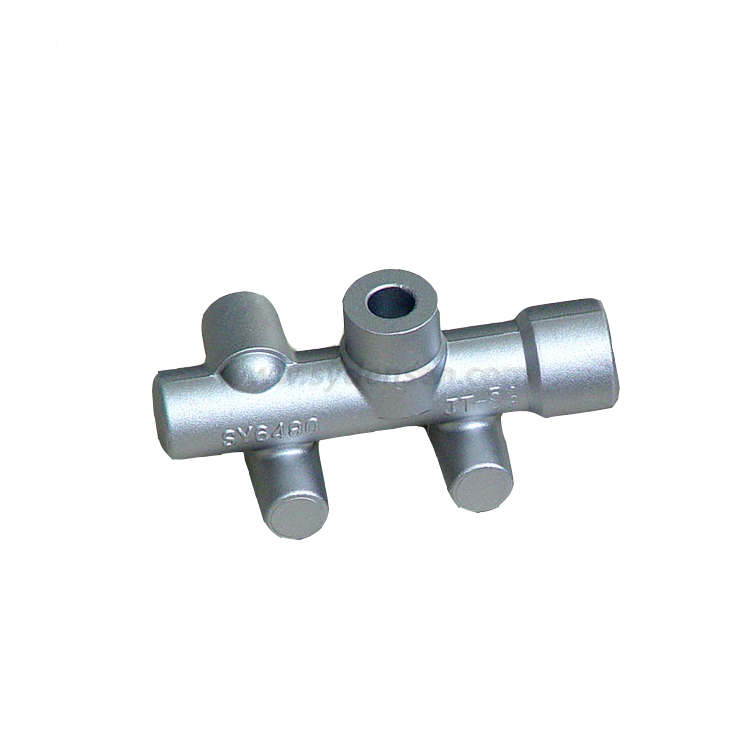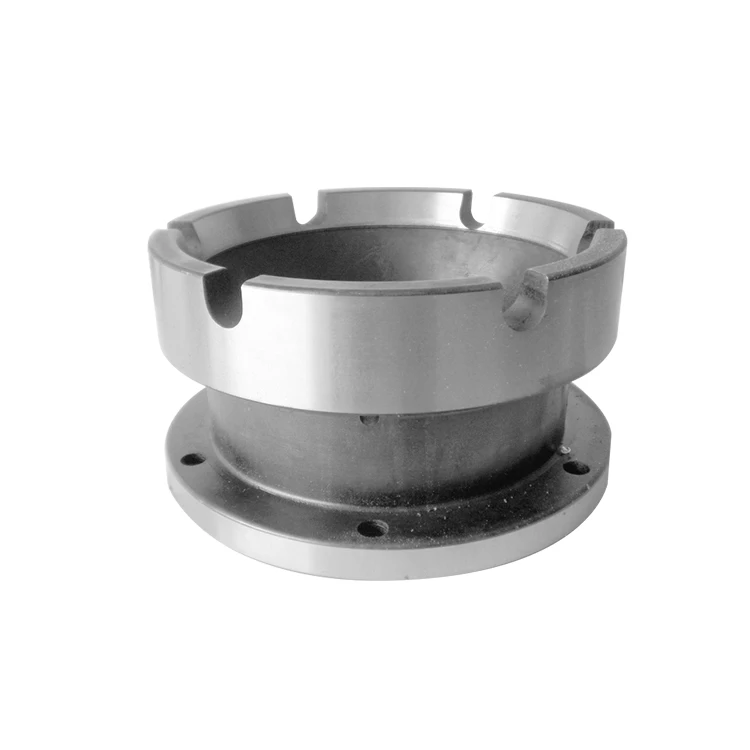Aluminum Foundry solutions designed for accuracy in production
Wiki Article
The Impact of Innovative Shop Services on Lasting Production Practices
Innovative shop solutions play an essential function in advancing sustainable manufacturing methods. By incorporating recycling technologies and energy-efficient processes, these services considerably lower environmental influence. Shops can recover useful materials, consequently reducing dependancy on virgin sources. As automation and lean production concepts obtain traction, manufacturing performance is optimized. However, the full level of these advancements and their ramifications for the future of manufacturing continue to be to be checked out.The Function of Advanced Recycling Technologies in Foundries
Advanced recycling modern technologies are changing the landscape of factories by enhancing product healing and minimizing waste. These ingenious processes enable shops to reclaim valuable steels and materials from scrap, lessening reliance on virgin resources. By incorporating advanced sorting, shredding, and melting techniques, shops can efficiently extract useful products from thrown out products, thereby promoting a round economic situation.In addition, these innovations sustain the manufacturing of premium alloys and elements, making sure that recycled materials fulfill rigid sector criteria (aluminum casting). Consequently, shops are not just boosting their material performance yet also reducing the ecological impact connected with traditional manufacturing methods
This change towards progressed recycling not just reinforces economic feasibility for shops but additionally lines up with international sustainability objectives. Inevitably, the unification of these modern technologies represents a considerable progression in the mission for lasting manufacturing methods within the foundry market.
Power Performance: Lowering Consumption in Production Processes
Power effectiveness in making procedures is crucial for sustainable procedures. Strategies such as process optimization methods, renewable resource combination, and waste heat recuperation play vital roles in lessening energy intake. By concentrating on these locations, makers can considerably decrease their ecological influence while improving productivity.Refine Optimization Techniques
A considerable number of making centers are progressively taking on procedure optimization strategies to enhance energy performance and minimize consumption. These methods include analyzing and fine-tuning production operations, identifying traffic jams, and carrying out automation to enhance operations. By leveraging information analytics, manufacturers can monitor energy use in real-time, allowing proactive changes to reduce waste. Methods such as Lean Production and 6 Sigma emphasis on eliminating inadequacies and maximizing resource allowance. In addition, advanced technologies like Net of Things (IoT) sensors provide insights into equipment performance, helping with anticipating upkeep that stops energy loss. On the whole, these procedure optimization approaches not just contribute to lowered power consumption but additionally foster a society of continuous renovation within making atmospheres, straightening functional exercise with sustainability goals.Renewable Power Combination
Several manufacturing centers are increasingly incorporating eco-friendly power sources to enhance total energy effectiveness and decrease reliance on standard power grids. This change includes the fostering of solar, wind, and biomass power, which can significantly decrease operational costs and decrease carbon impacts. By using these sustainable power resources, suppliers not just minimize their environmental impact yet likewise improve energy durability. Additionally, integrating renewable resource systems typically involves innovative technologies such as energy storage space and clever grid solutions, which maximize power usage and help with real-time monitoring. This combination sustains makers in attaining governing conformity and conference sustainability objectives while cultivating development in manufacturing procedures. Inevitably, eco-friendly energy combination represents an essential shift in the direction of even more sustainable manufacturing practices and long-term feasibility.Waste Heat Recovery
Incorporating sustainable power sources establishes the stage for additional advancements in energy effectiveness, particularly through the application of waste warm recovery systems. These systems record excess thermal power produced throughout manufacturing processes, which would or else be lost to the environment. By repurposing this heat, factories can substantially lower their power intake, lower functional costs, and minimize their carbon impact. The recouped warmth can be made use of for various applications, such as heating, power generation, or preheating basic materials. Therefore, waste warmth recovery not only enhances energy performance however additionally adds to a lasting production version. Cutting-edge foundry solutions that prioritize this modern technology are leading the method for an eco responsible industrial landscape, lining up earnings with ecological stewardship.Utilizing Eco-Friendly Materials in Factory Workflow
As the demand for lasting production practices expands, foundries are increasingly other turning to environmentally friendly materials to improve their procedures. By including lasting options, such as bio-based binders and recycled metals, factories can significantly reduce their environmental impact. These products often need less power for processing and can decrease unsafe discharges during manufacturing.The adoption of environmentally friendly products not only aligns with governing criteria yet also satisfies customer choices for greener products. Shops are checking out ingenious choices, such as using organic ingredients that improve mold and mildew high quality while remaining safe.
The shift to lasting products cultivates a circular economic situation by promoting resource reuse and minimizing waste. In addition, this change can boost the total effectiveness of factory procedures, as eco-friendly materials often exhibit premium residential properties, bring about enhanced item efficiency - aluminum casting. Ultimately, the usage of environmentally friendly materials stands for an essential action towards lasting production in the foundry sector

Developments in Waste Monitoring and Reduction Techniques
The shift in the direction of eco-friendly products in foundry operations paves the method for improvements in waste monitoring and decrease strategies. Innovative factory solutions are significantly taking on strategies that reduce waste generation and promote recycling. Methods such as closed-loop systems permit for the reuse of materials, greatly reducing the quantity of waste produced during making processes. In addition, innovations in filtration and separation technologies enable the reliable recuperation of beneficial spin-offs, which can be reintegrated into the production cycle.In addition, the execution of real-time tracking systems supplies data-driven understandings right into waste generation patterns, helping with notified decision-making to optimize source usage. Factories are also discovering biowaste services, transforming natural waste right into power or useful products, even more promoting sustainability. These technologies not only add to a round economic climate but additionally improve the general environmental efficiency of factory procedures, highlighting the industry's commitment to lowering its eco-friendly impact.
The Effect of Automation on Sustainable Manufacturing
While lots of markets goal for sustainability, automation emerges as a crucial aspect in improving lasting production techniques within shops. By integrating automated systems, foundries can accomplish greater performance, reduce waste, and lower energy consumption. Automated processes permit precise control over production criteria, decreasing issues and revamp, which in turn conserves sources.Automation assists in the monitoring of ecological influences, making it possible for real-time adjustments that straighten with sustainability goals. Advanced robotics and expert system can enhance product use, causing substantial decreases in scrap and exhausts
In addition, automated modern technologies advertise safer workplace by dealing with unsafe tasks, therefore enhancing worker health while making sure compliance with ecological laws. On the whole, the adoption of automation within factories not only simplifies operations yet likewise plays a crucial role ahead of time lasting wikipedia reference production techniques, adding to an extra accountable commercial landscape.
Situation Studies: Successful Application of Lasting Shop Practices
Successful implementation of sustainable practices in factories can be illustrated through various instance studies that highlight cutting-edge approaches and quantifiable results. One noteworthy example is a mid-sized foundry that adopted a closed-loop water reusing system, reducing water intake by 40% and reducing wastewater generation. In addition, this center changed to using environment-friendly mold materials, which not just better item quality but also enhanced employee security.An additional substantial situation entailed a big factory integrating renewable resource resources, such as solar panels, which counter 30% of its energy needs. This campaign not just decreased functional costs yet likewise added to a considerable reduction in carbon emissions.
A foundry that carried out lean manufacturing methods reported a 25% rise in effectiveness, leading to much less material waste and optimized manufacturing procedures. These cases collectively emphasize the concrete advantages and sustainability advancements possible through ingenious factory methods.
Frequently Asked Concerns
Just How Do Innovative Shop Services Add To Overall Sustainability Objectives?
Ingenious factory solutions enhance total sustainability objectives by optimizing resource usage, minimizing news waste, and boosting energy efficiency. These innovations add to lower carbon impacts and advertise environmentally accountable techniques within the production industry, supporting broader sustainability campaigns.What Are the Economic Conveniences of Adopting Sustainable Foundry Practices?
Taking on lasting foundry techniques can reduce functional costs, enhance source performance, and improve competition. In addition, these techniques can attract eco-conscious clients and investors, ultimately bring about boosted productivity and long-term economic viability for companies.Just How Can Little Shops Implement Sustainable Technologies Effectively?
Small foundries can execute sustainable innovations effectively by taking on energy-efficient technologies, optimizing resource usage, training staff on sustainable practices, collaborating with suppliers for environment-friendly materials, and participating in constant renovation procedures to decrease waste and discharges.What Certifications Exist for Sustainable Factory Operations?

Exactly How Do Consumer Preferences Influence Sustainable Manufacturing in Foundries?
Consumer preferences substantially influence lasting manufacturing in shops by driving need for green products. As consumers prioritize sustainability, shops adapt their practices, integrating greener products and innovations to meet market expectations and improve their competitive advantage.By repurposing this warmth, foundries can significantly lower their energy consumption, reduced operational expenses, and reduce their carbon impact. Shops are also checking out biowaste options, converting natural waste into energy or functional products, additionally advertising sustainability. By incorporating automated systems, shops can attain better performance, minimize waste, and reduced energy consumption. An additional substantial situation included a large factory integrating renewable power resources, such as solar panels, which counter 30% of its energy needs. Innovative foundry solutions enhance general sustainability objectives by enhancing resource use, reducing waste, and enhancing energy effectiveness.
Report this wiki page